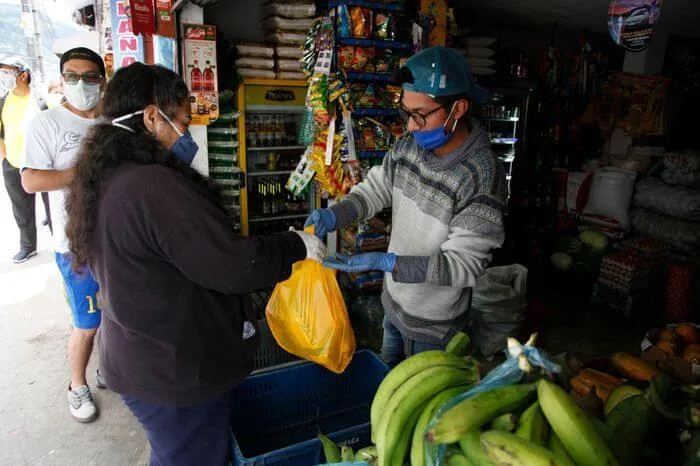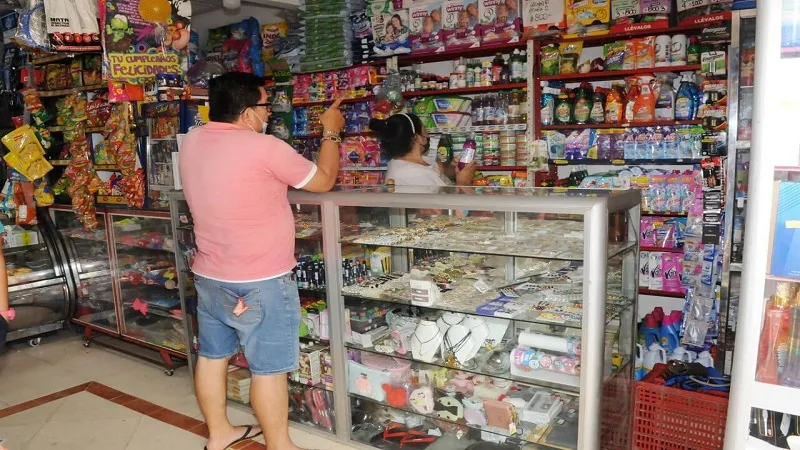The ignorance and disarticulation of the shopkeepers in Neiva is notorious, however, after the announcement by President Gustavo Petro, engines are turned on to start working on the organization of the sector. In addition, they finally celebrate being taken into account to be their representatives before the Chambers of Commerce.
DIARIO DEL HUILA, CLOSE UP
By: Johan Edward Rojas Lopez
The shopkeepers of the Huilense capital since last year have expressed several affectations that have had a direct impact on their profit. Added to this was the inconvenience caused by the implementation of the Tax Reform proposed by the national government, which included a tax on sugary drinks and ultra-processed products.
However, after President Gustavo Petro will announce that the country’s shopkeepers will be their representatives on the boards of directors of the Chambers of Commerce, they finally feel heard and taken into account, for which they applaud this decision. This measure, according to the Colombian president, was supported in order to boost the popular economy and micro and small businesses.
The announcement was made last week in the framework of a meeting that the National Government had with 90 representatives of the country’s shopkeepers. In said meeting, held in Casa de Nariño, the Head of State asked them to deliver the lists corresponding to those who meet the requirements demanded by these entities so that he himself delegates them as his proxy.
In addition, the space was used to propose an order through the associations in order to strengthen the union and guarantee that the vast public money managed by the Chambers of Commerce serves to empower merchants.
He also detailed the importance of developing educational processes in micro and small businesses, particularly on issues related to technology, digital platforms and accounting. “The popular economy has not been built by the State or by large companies, but by the people themselves, and it is a complex, diverse, extended network that has 80% of the jobs in the country, that is, the popular economy is what allows people to work. There is a power that must be unleashed. The history of the popular economy shows us that it has been a power that has been used and that has allowed them to survive”, argued the leftist leader.
It may interest you: The engineer who stole $23 million on the prepaid page
Between positivism and ignorance
Unfortunately, the sector of shopkeepers in Neiva is completely disjointed and uninformed, however, there is a legally constituted Cooperative of Shopkeepers and Entrepreneurs, which has 20 members who work in this area.
Carlos Enrique Mota Galindo, legal representative of the cooperative, indicated that they perfectly understand the need to organize to strengthen and consolidate work teams with the 3,450 existing shopkeepers in the 10 communes of Neiva, of which they are only affiliated with Chamber and Commerce. 1,340. Only that voice and vote will be achieved by resorting to the formality and consolidation of the sector.
And it is that, the difference between those who are registered and who are not is very wide, which delimits a significant work, therefore, they have been fighting in the consolidation of associations or affiliation to the cooperative. Knotted to that, they have focused on the training required by shopkeepers or businessmen.
“The support of the president in each Chamber of Commerce is very positive to know how the money that is public is being invested. The benefit would be good because we are going to know the information first hand and we are going to be able to continue growing as a union. This decision is made because we are the ones who manage the economy and help to strengthen the popular or circulating economy in cities and towns. We received this announcement from the president positively, it was opportune and necessary that they think about the shopkeepers who also do not let the native products of our region die, “said Mota Galindo.

The discontent begins to be left behind
This decision could leave behind the discontent that arose at the end of last year with the tax reform that, according to the legal representative of the cooperative, was considered and had strategic points. However, despite this, the neighborhood stores and entrepreneurs have followed their course because they are people who want to survive, in addition, with the little support for economic reactivation that exists from the institutions, which have fallen short with the strategies punctually for the shopkeepers.
He explained that, “approximately 20 neighborhood stores are born here every month and 8 close, that is the dynamic that is seen in the commerce and in the structure of Neiva. Before the pandemic there were 3,150 Neiva shopkeepers and now there are 3,450, that is, there has been an increase. The economy is dynamic and one must adjust to changes and must envision the future to receive things in a good way. However, informality in Neiva is great because there are not many sources of employment here, there is not much industry and most seek to grow daily in this way”.
This is how his perspective focuses on growth even more after the efforts made by the National Government with the sector and understanding neighborhood shopkeepers as entrepreneurs to strengthen the popular economy, articulating with other populations such as peasants and others. Currently, in commune 9 there is already the first Instruction Center where a daily service is provided throughout the day so that shopkeepers have greater opportunities and it is expected soon with the support of the Government of Huila to be able to create the second in Neiva.
“The idea is to work with the producers, since we deliver the raw material and they return the products to us for sales that will be distributed to all the shopkeepers in Neiva. According to a market study that was carried out, the communes that have the most shopkeepers are 6, 8, 9 and 10, and in this sense, eight centers of distribution, we will only fit in eight because in the center it would be viable”, he argued.
They will bet on the improvement of advertising through the management of digital marketing since 45% of the store owners are elderly people who have not had access to this type of learning and, therefore, they always seek to improve.
Also read: “Potato price may continue to rise”
A coherent announcement
For Andrea Perdomo Soto, coordinator of Coomultiendas, this decision is very coherent because shopkeepers and micro-entrepreneurs have been left aside from the entire ecosystem of the economy for many years; That is why it is so important that the government is proposing this interaction between a shopkeeper and the Chamber of Commerce of each region.
“It is very important that the shopkeepers participate and are aware because the Chamber of Commerce is the one that collects part of the taxes that the shopkeepers pay for various concepts and that return of that money is not seen. So this support that the new government has given to the shopkeepers is very appropriate, ”he specified.
He then added that they were already carrying out organizational work in the sector and the idea with this invitation from the country’s president is to continue in that dynamic that only this cooperative has entered in the capital of Huila. The idea, of course, is to be able to support them pedagogically because many shopkeepers do not have access to large distributors or seek financial support to grow, but unfortunately they never find it. “The idea is that even though they are small, they understand that they are businessmen who contribute to the territory and become formalized so that government support can be given,” said Perdomo Soto.
For her part, with reference to the Tax Reform, she stated that taxes are declared and the products have to be sold that way and the value is transferred to the final customer, which has an impact on sales. However, the consumer ends up paying because the food does not wait and in any case you have to buy. She determined that, “In our Neiva Intrusion Center, we analyzed that sales in December definitely fell by 40% compared to the previous year, that is, that indeed there is an incidence of this new tax on certain products.”
Finally, he made it clear that they are managing support to undertake field work where they will visit the various communes to inform the shopkeepers about all these guidelines that are presented. In other words, they have strategies to transmit information that will begin no later than March.

Shopkeepers say:
José Ramon Muñoz Rojas, shop in the north of Neiva
“It would be time to take a good look at what he plans and if it suits us or not because at this moment the Chamber of Commerce is useless, only one pays, but the shopkeepers do not take us into account. They manage the big merchants and they don’t tell us anything. Taxes go up everything and thus sales decrease by 20%. You have to look because a lot of information is missing and it is unknown ”.
Aldemar Rodríguez, shopkeeper in the center of Neiva
“I have heard something out there but I have no more information, there is no one here to explain to one how this whole process develops. The only thing we can say at this moment is that the situation is difficult and many are closing the stores because the profits are not so good. Of course it is important to organize ourselves, but nobody has the initiative”
